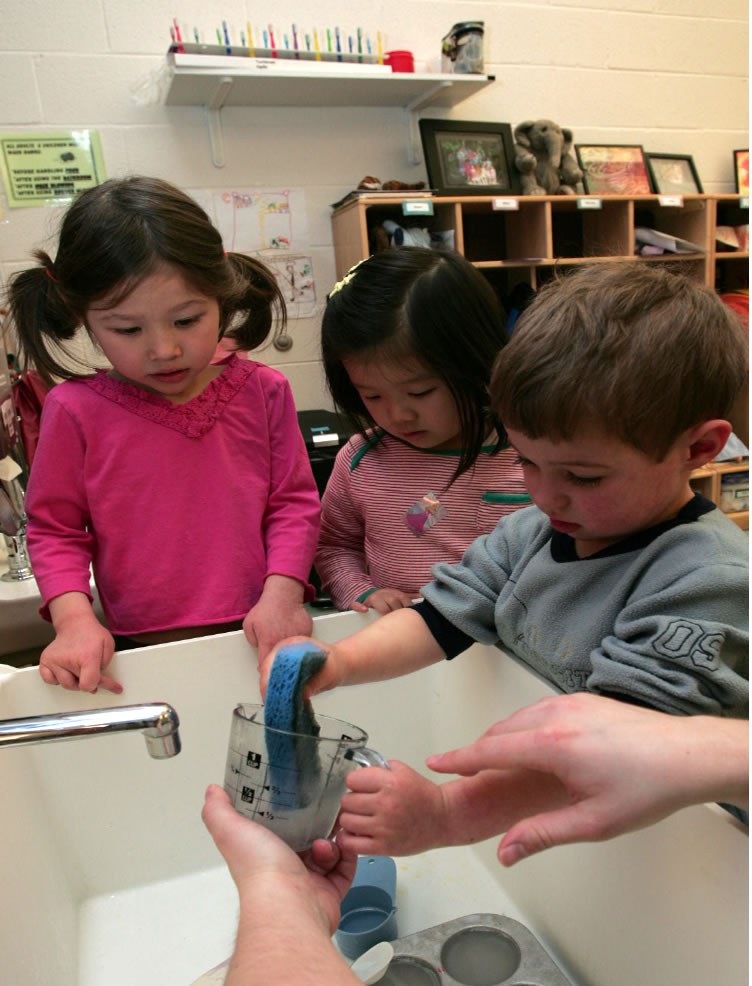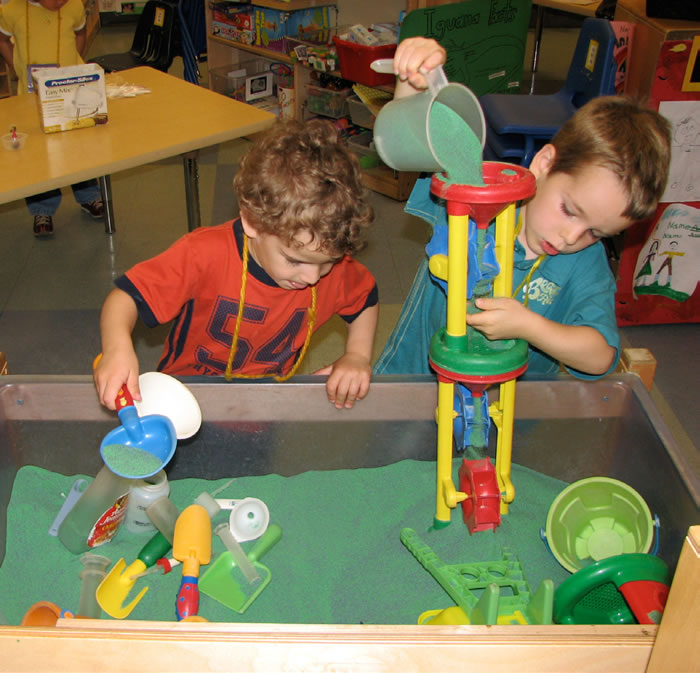What to expect from three-year-olds and fun, easy play ideas. Three-year-olds are a lot of fun! They often spend a lot of time watching and exploring. They want to please you and to do things “right.”

Three-year-olds are interested in working on their motor skills. They may spend the whole morning going down a slide or riding a tricycle. They like to do the same things over and over again.
Remember: Every child is different. They may learn and grow at different
rates.
What to expect from three-year-olds
Doing skills
- Puts on shoes (but can't tie laces)
- Can dress himself with some help
- Can feed herself with a small spoon and fork (with some spilling)
- Kicks a ball forward
- Can stand, balance, and hop on one foot
- Can throw a ball
- Jumps with both feet
- Can pedal a tricycle
- Uses toilet (may still need some help)
Thinking skills
- Listens to short stories and books
- Likes stories that repeat or rhyme
- Can listen for about three minutes
- Likes to play with clay
- Can put together a puzzle with six pieces
- Knows common sounds
- Knows common colors, such as red, blue, yellow, green
- Can count two or three things
- Can follow simple directions
Talking skills
- Talks in sentences, using three to five words
- Likes to say the same words and sounds over and over again
- Likes to sing and can carry a simple tune
- Asks questions -- who, what, where, and why
- Likes to be silly and say silly words
Three-Year-Olds like to explore.
Skills with others
- Wants to please adults
- Enjoys helping with simple jobs
- Likes to play alone, but near other children
- Will play with another child for a short time
- Likes to play "house"
- Isn't able to share
- Will take turns with other children
Tips for working with three-year-olds
 Three-year-olds will not be able to sit for a long time. Keep group times short.
Three-year-olds will not be able to sit for a long time. Keep group times short.- Expect accidents with toileting. Three-year-olds are still learning.
- Keep directions simple. "Put the blocks in the bucket." "Put on your coat."
- Let children help you with simple jobs, such as picking up toys, setting the table, sorting socks, folding washcloths, etc.
- Remember that three-year-olds will not be able to share. Learning these skills will come later. Have more than one of the same toy so more than one child can play at the same time.
- Help children to take turns and to find things to do while they wait for their turn.
- Help children to solve their own problems by talking with them.
"Karen is playing with the red truck and you would like to play with it. What can we do?"
Things to do with three-year-olds
 Play ball -- show children how to throw, catch, and kick balls of different sizes.
Play ball -- show children how to throw, catch, and kick balls of different sizes.- Sing simple songs with them.
- Give them lots of time to run, jump, and play outside.
- Read books to them every day.
- Sing action songs with movements and do finger plays.
- Make simple instruments, such as an oatmeal box or coffee can for drums, dry beans in a box for shakers, etc.
- Give children paint, crayons, chalk, and finger paints to draw and scribble. Remember, there is no right or wrong way to make art.
- Put paper, small notepads, and pencils in the housekeeping area.
- Talk about colors, numbers, and shapes as you talk with the children. "You're playing with a red car." "The crayons are in a square box." "Susan's doll needs two shoes."
References:
Developmental Milestones: A Guide for Parents, The Third Year, by Joyce
Powell and Charles A. Smith
Ages and Stages -- Three-Year-Olds, by Lesia Oesterreich
Used in part with permission from National Network for Child Care - NNCC.
Oesterreich, L. (1995). Ages & stages - three-year-olds. In L. Oesterreich, B.
Holt, & S. Karas, Iowa family child care handbook [Pm 1541] (pp. 202-204).
Ames, IA: Iowa State University Extension.
TIPS 2-5

